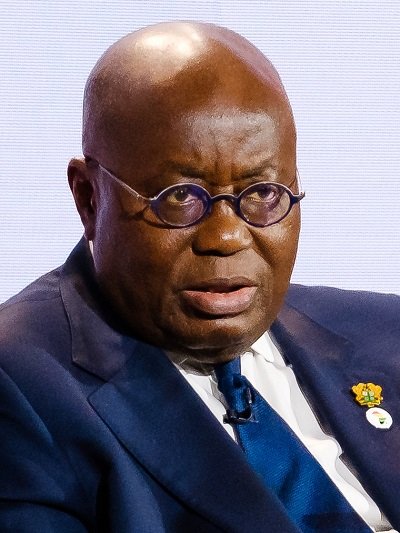Features
Ghana: ‘Mourning’ over return to IMF?

Ghana is speedily heading to the International Monetary Fund (IMF) for a fresh bailout, just after over three years, exiting the IMF programme.
Indeed, Ghanaians in recent months, have been feeling debilitating pinch of high inflation record and the impact of the Covid-19 pandemic and the Russia-Ukraine war, despite cuts in Government’s spending to avoid full blown debt crisis.
The Government of Ghana has issued an official statement signed by the Information Minister saying: “The President of the Republic, Nana Addo Dankwa Akufo-Addo, has authorised the Finance Minister, Ken Ofori-Atta to commence formal engagements with the International Monetary Fund, inviting the Fund to support an economic programme, put together by the Government of Ghana.
“This follows a telephone conversation between the President and the IMF Managing Director, Miss Kistalina Georgieva, conveying Ghana’s decision to engage with the Fund.
“At a meeting on June 30th, 2022, cabinet indicated its support for the decision.
“The engagement with the IMF will seek to provide balance of payment support as part of a broader effort to quicken Ghana’s build back, in the face of challenges induced by the Covid-19 pandemic and, recently, the Russia-Ukraine crises.”
Dr Albert Touna-Mama, IMF’s Ghana Country Representative, has confirmed that Ghanaian officials have contacted the Fund to request for assistance with the country’s own economic plan.
A tweet by Dr Touna-Mama says: “The IMF stands ready to support Ghana in restoring macro-economic stability, safeguarding debt sustainability and prompting inclusive and sustainable growth.”
The Government had previously stated emphatically, not to seek a bailout from the IMF again, especially when the country completed its last IMF programme in 2018, assuring that it has the capability of managing the nation’s economy efficiently.
Indeed, just a few weeks ago, the Finance Minister had re-stated the government’s aversion to suggestions for an IMF option in the face of the crippling difficulties confronting the Ghanaian economy, insisting that Ghana has the resources to prudently manage its economy.
For months, the government fought very hard to approve and implement a 1.5 per cent levy on electronic transactions.
Among many arguments, the government said the E-Levy was a direct substitute for a possible bailout from the IMF, in the face of the country’s growing economic challenges.
For instance, the New Juaben South Member of Parliament, Michael Okyere Baafi, in one of such arguments in defence of the Government said; “falling on the IMF for a bailout means, we cannot manage our own economy and that they should come to our rescue.”
“So, they will tell you that the first thing you have to do, is to cut your coat according to your size.
“And they will direct the Government to cancel the Free Senior High School programme, which is only a political decision and not an entrenched constitutional issue.”
Painfully, the government has eaten back its own words and since the announcement of its decision to “dance again” with the IMF, many Ghanaians have been “mourning” and expressing “hot” anger over the decision, contending that the IMF will be pushing “bitter pills” down the throats of Ghanaians in the name of a bailout.
Really, “mourning” is the outward expression of one’s grief. Grief is the internal feeling given to the experience of loss. Examples include fear, panic, pain, yearning, anxiety and emptiness.
Synonyms for “mourning” include wailing, weeping, sadness, despair, heartache, shiva and lamentation.
Some critics of government’s decision to return to the IMF say: “Election related expenditures, travel expenses and national cathedral expenses did not indicate that Ghana was really in distress.
“Rather, unexplained high borrowing beyond unsustainable levels, entangled the in-built resilience of the economy as interest payment burden, undermined fiscal prudence.
“While policy credibility and confidence have been compromised and mutilated.”
Others also argue that:”Though we have global economic challenges, not all countries are going to the IMF due to the pandemic and the Russia-Ukraine war.
“In terms of expenditures and funds related to Covid-19, Ghana experienced positive net benefits as the funds raised were more than the expenditures incurred.
“So, if the fresh and ongoing engagement with the IMF is pandemic induced, then it is mismanagement and corruption.
“Really, the intention of government to engage the IMF is to stabilise the economy and learn some basic lessons of prudence and productive expenditures, as statutory payments to many state institutions are even in several months arrears.”
Charles Robertson, global chief economist at the London-based Renaissance Capital, however, says:” It makes sense for Ghana to seek cheap IMF financing as bond markets were shut to the country.”
According to Robertson; “Ghanaian notes have been trading at distressed levels, amid concerns that the government will not be able to refinance foreign debts after the pandemic, and the Russia-Ukraine war sent borrowing costs soaring.”
Robertson says; “Ghana, just saying that they will begin talks with the IMF, will help open the door to them eventually, to access the international market.”
With Ghana having started engagement with the IMF for a very fresh bailout, the seeming “mournful” question on the lips of many is: “Why should we go back again to ‘dance’ with the IMF and suffer ‘broken limbs’?”
Alternatively, as a nation, what shall we do to avoid running to the IMF, again and again?
Contact email/ WhatsApp of author:
asmahfrankg@gmail.com (0505556179)
By G. Frank Asmah